Dec 28, 2016 | Non categorizzato, Word of
A group of primary school children in Rome tried to put this Word of Life into practice: “Yesterday evening my mother and I went out for a meal with one of my Mum’s friends. I ordered a side dish with the meal, and then I wanted something for dessert. My mother said no. I was about to be angry, but I remembered that Jesus was in my mother so I just smiled instead.” “I went home after a tiring day. While I was watching television my brother took the remote control from me. I was very angry with him, but then I calmed down and let him watch TV.” “Today I answered back angrily when my father spoke to me. I saw that he was not happy about this, so I said sorry, and he forgave me.” Although there may not have been an exact link between the experiences these children told and the Word of Life they were living at the time, the push to love is itself the fruit of the Gospel put into practice. Any Word of Life we set out to live has the same effect. It changes our lives and puts the desire to be attentive to other people’s needs into our hearts, enabling us to be at the service of our brothers and sisters. It could not be otherwise: welcoming the Word and living it gives life to Jesus in us and helps us to act like him. This is what Paul is saying in this letter to the Corinthians. What urged St Paul to announce the Gospel and dedicate himself to the unity of his communities was the deep experience he had had with Jesus. He had felt loved and saved by Jesus, who had entered into his life to the point that nothing and no one could separate him from Jesus again. It was no longer he who lived, because Jesus lived in him. The thought that the Lord had loved him to the point of giving his life astounded Paul and stirred him into action. Its irresistible power urged him to do the same thing with the same love. Does the love of Christ urge us on with the same zeal? If we have truly experienced his love, we cannot fail to love in turn and courageously enter places where there is division, conflict and hatred so as to bring agreement, peace and unity. Love enables us to bring love beyond all obstacles, so as to create real connections with people, through understanding and sharing, and to find solutions together. It is not a question of choosing this or not. Unity must be pursued at all costs, without letting ourselves be hindered by false prudence, by difficulties or by potential clashes. Such an approach is urgently needed above all in ecumenism. This Word of Life has been chosen for this month in which we celebrate the Week of Prayer for Christian Unity. It can be lived together by Christians from different churches and communities so that we will all feel urged on by the love of Christ to seek each other out so as to re- establish unity. When Chiara Lubich spoke at the opening of the Second Ecumenical European Assembly at Graz, Austria on June 23, 1997, she affirmed, “An authentic Christian who wants reconciliation is someone who knows how to love others with God’s own charity, which makes us see Christ in each person, a charity that goes out towards all people (Jesus died for the whole human race). This charity always takes the initiative and enables us to love each person as ourselves, making us one with our brothers and sisters: in sufferings, joys, etc. The Churches too should love with this love.” May we too live the radicality of love with the simplicity and seriousness of those schoolchildren in Rome.
Fr. Fabio Ciardi, OMI
Each month the Focolare offers a Scripture passage as a guide and inspiration for daily living. Ever since the Focolare’s earliest years, founder Chiara Lubich (1920– 2008) wrote her own commentaries each month. Now Fr. Fabio Ciardi, OMI, theologian and close collaborator of Lubich, heads a group of scripture experts who have been entrusted with the task of writing the Word of Life commentaries, reflecting her thoughts and her spirituality of unity. This Word of Life is translated into 96 different languages and reaches several million people worldwide through the media. This monthly leaflet is also a supplement to Living City, the Focolare magazine (livingcitymagazine.com). For information and to subscribe to this leaflet or to the magazine, write to: Living City, 202 Comforter Blvd, Hyde Park, NY 12538; tel: 845-229-0496; e-mail: livingcity@livingcitymagazine.com. Visit focolare.org (international) or focolare.us (U.S.). © 2017 by Living City of the Focolare Movement, Inc. Read more: Lubich, Chiara. The Art of Loving. New City Press: Hyde Park, New York, 2010. Lubich, Chiara. “False Prudence,” Meditations. New City Press: Hyde Park, New York, 2005, p.33.
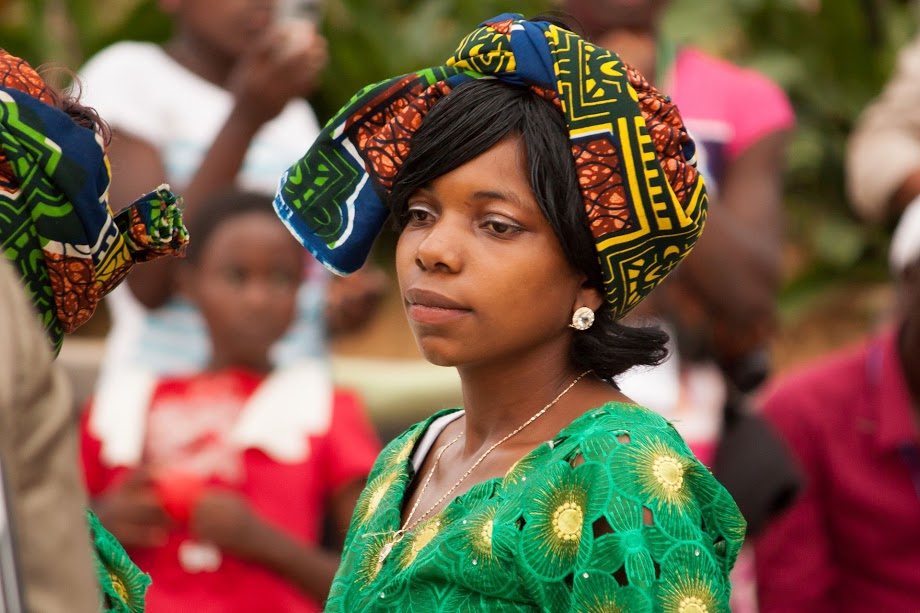
Dec 27, 2016 | Non categorizzato
Memories, gratitude and commitment were the keypoints of the celebrations in Fontem, Cameroon, for the 50th anniversary of the arrival of several focolarini in the Cameroon forest to begin a work in close harmony with the local Bangwa peo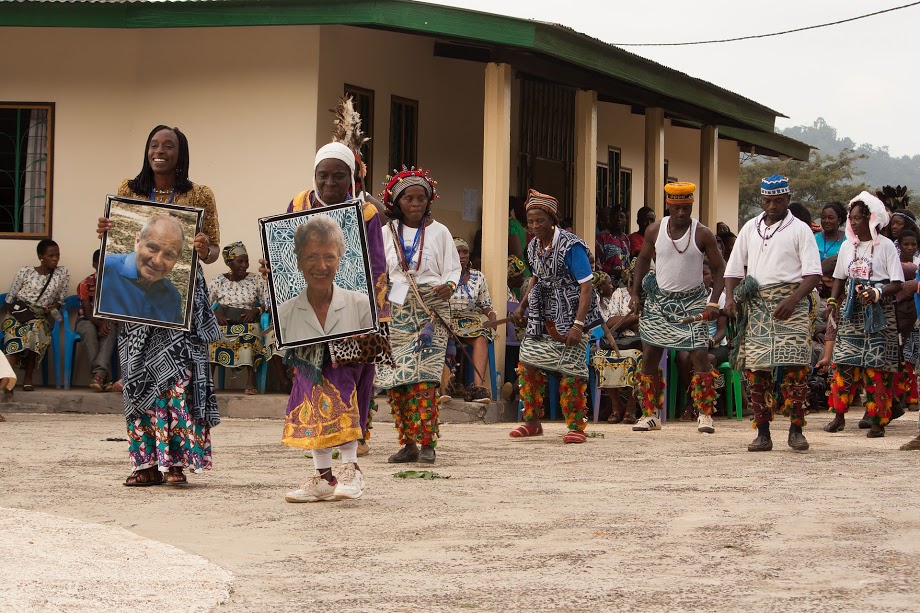 ple. In the opening remarks of civil and traditional authorities, and Focolare co-president Jesús Morán, the importance of those beginnings was remembered as well as the notable development that followed. The method used by the focolarini was also emphasized: dialogue with the local population and its traditional religion. This approach, which is typical of the Focolare, gave rise here and throughout the world to many positive experiences of interreligious dialogue, as Rita Mussallem from the Focolare’s Centre for Dialogue remembered in her address. The keynote address was given by Bishop Nkea Andrew, Bishop of the Mamfe Diocese who, through his own personal experience as a Bangwa, confirmed the precious value of this dialogue and its total conformity to the Gospel. One young Austrian priest who attended the events, commented: “The harmony between the values of African culture and Christian values is quite striking.” On the second day, which was dedicated to testimonies, one of the first nurses and first doctors emphasized how the close collaboration with the local people was a light for providing care to the sick that took into account the needs of both body and spirit. New and lasting friendships were born that brought healing. There were touching testimonies of accompanying people in the final moments of life. This was followed by the testimonies of several ex-students of the College: a police comissioner, a young priest and a nurse. They all said that along with the excellent scientific knowledge, they were also provided the possiblity of discovering those human and spiritual values that now make them happy human beings and appreciated by the Church and society. There was a presentation of the Economy of Communion in Cameroon, a project that will soon be launching an international conference on the continent. The third day was dedicated to giving thanks. Several presentations remembered all those, among the first, who gave their lives for Fontem like Piero Pasolini, Dr Lucio da Soglio, and so on…. Since they considered the others to be their equals, their work was marked by reciprocity and not assistenzialism. This was followed by traditional dances from five Fondoms (territories) that comprise Lebialem Division. More than 2,500 people were then served lunch thanks to the love of many “mamme” who had worked tirelessly, day and night, in the days leading up to the event. In the evening, there was a very moving musical presented by the children and students, which recounted the story of Fontem.
ple. In the opening remarks of civil and traditional authorities, and Focolare co-president Jesús Morán, the importance of those beginnings was remembered as well as the notable development that followed. The method used by the focolarini was also emphasized: dialogue with the local population and its traditional religion. This approach, which is typical of the Focolare, gave rise here and throughout the world to many positive experiences of interreligious dialogue, as Rita Mussallem from the Focolare’s Centre for Dialogue remembered in her address. The keynote address was given by Bishop Nkea Andrew, Bishop of the Mamfe Diocese who, through his own personal experience as a Bangwa, confirmed the precious value of this dialogue and its total conformity to the Gospel. One young Austrian priest who attended the events, commented: “The harmony between the values of African culture and Christian values is quite striking.” On the second day, which was dedicated to testimonies, one of the first nurses and first doctors emphasized how the close collaboration with the local people was a light for providing care to the sick that took into account the needs of both body and spirit. New and lasting friendships were born that brought healing. There were touching testimonies of accompanying people in the final moments of life. This was followed by the testimonies of several ex-students of the College: a police comissioner, a young priest and a nurse. They all said that along with the excellent scientific knowledge, they were also provided the possiblity of discovering those human and spiritual values that now make them happy human beings and appreciated by the Church and society. There was a presentation of the Economy of Communion in Cameroon, a project that will soon be launching an international conference on the continent. The third day was dedicated to giving thanks. Several presentations remembered all those, among the first, who gave their lives for Fontem like Piero Pasolini, Dr Lucio da Soglio, and so on…. Since they considered the others to be their equals, their work was marked by reciprocity and not assistenzialism. This was followed by traditional dances from five Fondoms (territories) that comprise Lebialem Division. More than 2,500 people were then served lunch thanks to the love of many “mamme” who had worked tirelessly, day and night, in the days leading up to the event. In the evening, there was a very moving musical presented by the children and students, which recounted the story of Fontem. On the fourth day, the presence of Our Lady Seat of Wisdom College in Fontem was celebrated. The bishop of Mamfe exhorted the many ex-students who had come from many countries of the world, to be aware of the gifts they had received and have made them ambassadors of unity wherever they may go. Charles Tasong, who was among the first Bangwa to know the Focolare commented: “During the Cry Die (commemorating Lucio Soglio, Lino D’armi and Doris Ronacher, who died recently after spending all their energy on Fontem), I realized that there is no longer the Focolare and the Bangwa; no longer the whites on one side, the blacks on the other – but one family. I want to embrace the challenge of bringing forward in my own life the powerful reality of unity that we experienced here in Fontem.” Biagio Sparapano
On the fourth day, the presence of Our Lady Seat of Wisdom College in Fontem was celebrated. The bishop of Mamfe exhorted the many ex-students who had come from many countries of the world, to be aware of the gifts they had received and have made them ambassadors of unity wherever they may go. Charles Tasong, who was among the first Bangwa to know the Focolare commented: “During the Cry Die (commemorating Lucio Soglio, Lino D’armi and Doris Ronacher, who died recently after spending all their energy on Fontem), I realized that there is no longer the Focolare and the Bangwa; no longer the whites on one side, the blacks on the other – but one family. I want to embrace the challenge of bringing forward in my own life the powerful reality of unity that we experienced here in Fontem.” Biagio Sparapano

Dec 24, 2016 | Non categorizzato
 Christmas, Christmas, how often have we celebrated you with pure joy and unmatched ardour! But you find our hearts so frozen by the coldness of this world, that you cannot touch them as you would with your mysterious extraordinary message: GOD LOVES US, one by one and all together. This Love wrapped us round so completely that the Blessed Trinity resolved to send among us the Son of God made man, so our brief sojourn on this earth could be illuminated from now on by the Light that does not fade, and the absurdity of death in this life be transformed into a simple passing into life more full and eternal! We hope this year at least, that You, Christmas, may say to our hearts all you wish to say and find us ready, here and now to hear your voice.
Christmas, Christmas, how often have we celebrated you with pure joy and unmatched ardour! But you find our hearts so frozen by the coldness of this world, that you cannot touch them as you would with your mysterious extraordinary message: GOD LOVES US, one by one and all together. This Love wrapped us round so completely that the Blessed Trinity resolved to send among us the Son of God made man, so our brief sojourn on this earth could be illuminated from now on by the Light that does not fade, and the absurdity of death in this life be transformed into a simple passing into life more full and eternal! We hope this year at least, that You, Christmas, may say to our hearts all you wish to say and find us ready, here and now to hear your voice.
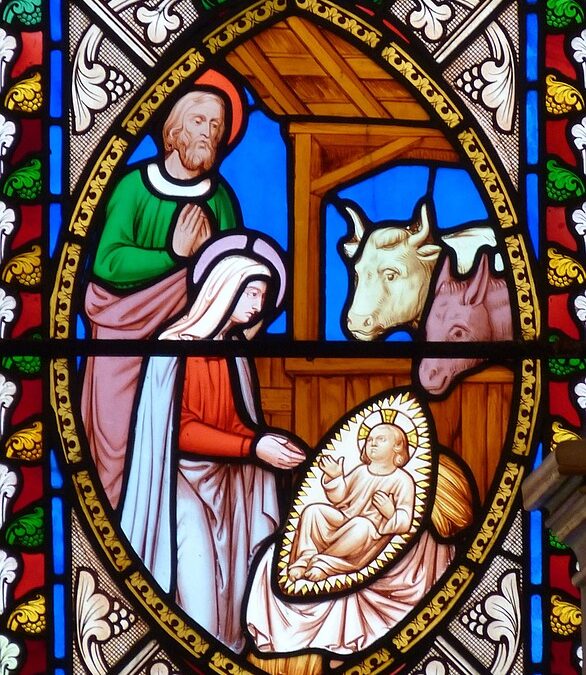
Dec 23, 2016 | Non categorizzato
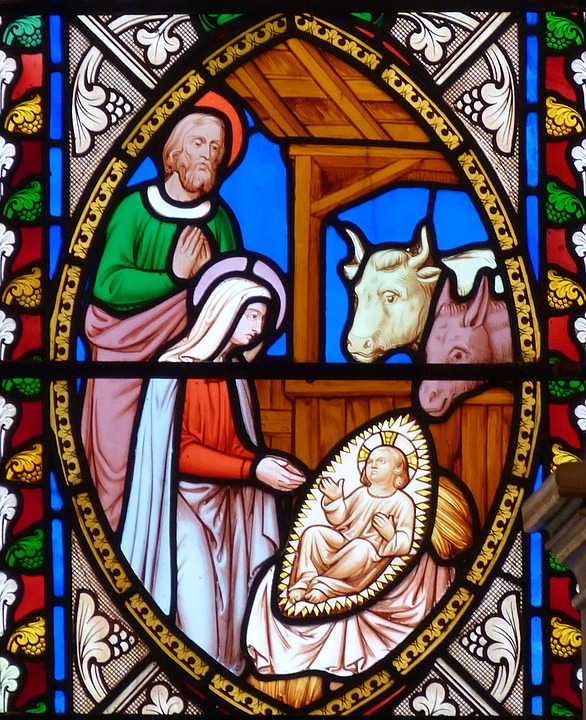 |
Christmas reminds us, along with the Scripture passage that we’ve chosen to live this month, that “He comes to save us” (Is 35:4). Save us from what? Among other things, our indifference towards those who suffer. My wish for you this Christmas is that we may all go beyond ourselves and welcome the other, all the others: those in need, those who have left their own lands because of hunger and war, those who are lonely, marginalized, imprisoned….. My wish for all of us is that after having experienced God’s love that saves us, we will reach out to save those around us. Happy Christmas everybody!
Maria Voce
|
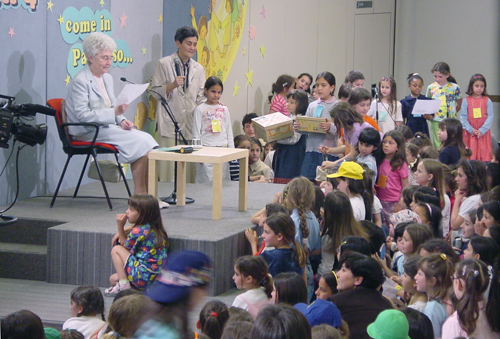
Dec 22, 2016 | Focolare Worldwide
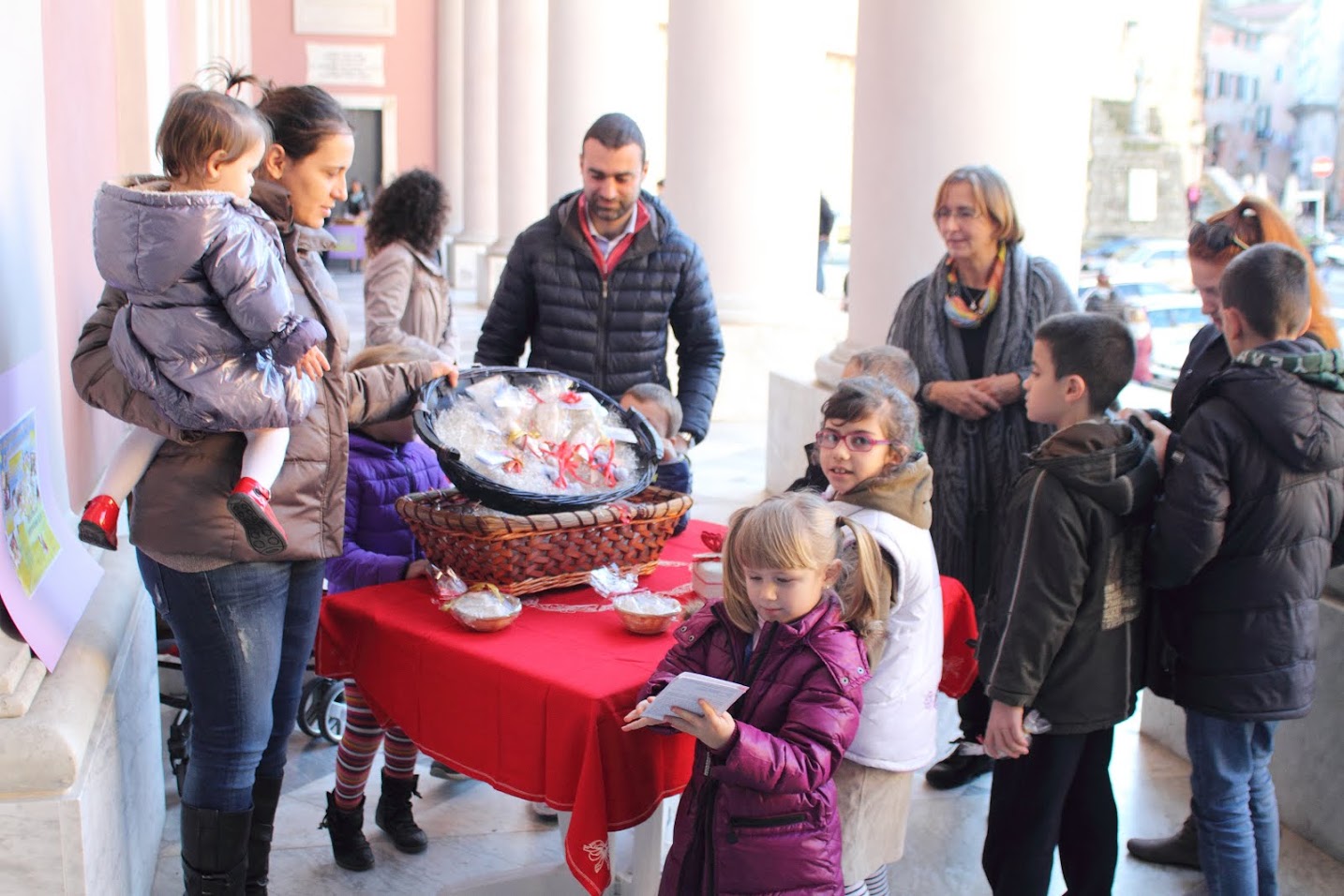 They are the Gen4, the children in the Focolare Movement, explain their idea of Christmas not only as a colourful celebration, filled with enchanting imaginary characters created by persuasive businesses and a frenetic race to sell and buy gifts: We should put Jesus back into the centre of Christmas, it’s his day,” they explain. The Gen4 made the small figurines of the Holy Child with much patience and love and then gave them away to passersby. They report from New York City: “While visiting the city with some friends, in the midst of the crowd, your small table drew my attention … Those words, “They’ve Evicted Jesus” resounded inside me! I’d like to transmit your message to others! This is has been my most beautiful Christmas, you’ve filled my heart with warmth.” Maria Helena Benjamin and Pep Cannoves who are responsible for the Gen4 worldwide, recounted how these little ones are particularly sensitive to evangelical love. They learn to concretize it in their daily actions, real factual gestures of fraternity. They discover that when love is mutual it brings the presence of Jesus among them. Thus they come to know Him and create simple and direct relationship with Him. They manage to involve their friends at school, their families, their parents and their teachers with their disarming simplicity, and they enter into the heart of each one of them.
They are the Gen4, the children in the Focolare Movement, explain their idea of Christmas not only as a colourful celebration, filled with enchanting imaginary characters created by persuasive businesses and a frenetic race to sell and buy gifts: We should put Jesus back into the centre of Christmas, it’s his day,” they explain. The Gen4 made the small figurines of the Holy Child with much patience and love and then gave them away to passersby. They report from New York City: “While visiting the city with some friends, in the midst of the crowd, your small table drew my attention … Those words, “They’ve Evicted Jesus” resounded inside me! I’d like to transmit your message to others! This is has been my most beautiful Christmas, you’ve filled my heart with warmth.” Maria Helena Benjamin and Pep Cannoves who are responsible for the Gen4 worldwide, recounted how these little ones are particularly sensitive to evangelical love. They learn to concretize it in their daily actions, real factual gestures of fraternity. They discover that when love is mutual it brings the presence of Jesus among them. Thus they come to know Him and create simple and direct relationship with Him. They manage to involve their friends at school, their families, their parents and their teachers with their disarming simplicity, and they enter into the heart of each one of them.  Pep Canoves recalled how Chiara Lubich deeply cherished these little ones, giving them a special place in her heart, going to visit them during their international congresses, sending messages to them, answering their questions. And it was to them that she extended the invitation to prevent Jesus from being banished from Christmas: “Let Jesus be born in your midst through your mutual love; then it was always be Christmas! […] We can offer Jesus, Jesus in our midst to the whole world. We can take this love of ours, Jesus in the midst, our joy, into the streets, into the schools, to young and old … anywhere!” The Gen4 also have their Advent Wreath activity. They fill the days before Christmas with many concrete acts of love that are appear simple, but in their smallness are quite revolutionary. The Gen4 are involved in many projects, especially for the most poor. “During the year,” Maria Helena Benjamin continues, “we receive lots of news from around the world about their projects for the marginalized, like the story of five year-old Sonia from Romania who became friends with a Roma girl that had just joined her class.” “We received news from Madagascar and from Indonesia. Also from Syria which these days is in so much trouble and at war… Pep recounts: “From Aleppo they even sent us photos: in these conflict situations we carry on living with them, continuing with them to believe in love.” Once, while answering to a question from one of the Gen4 boys, Chiara had given them a special assignment: “Do you know what real happiness is? It’s the happiness you have when you love. Try it! Whenever you love, you’re happy. If you love all the time, you’ll be happy all the time. What should you do in the world? Give happiness to people, teach everyone to love.” And they really do teach us, with their purity and simplicity, how to put evangelica love into practice, the secret to happiness. Patrizia Mazzola
Pep Canoves recalled how Chiara Lubich deeply cherished these little ones, giving them a special place in her heart, going to visit them during their international congresses, sending messages to them, answering their questions. And it was to them that she extended the invitation to prevent Jesus from being banished from Christmas: “Let Jesus be born in your midst through your mutual love; then it was always be Christmas! […] We can offer Jesus, Jesus in our midst to the whole world. We can take this love of ours, Jesus in the midst, our joy, into the streets, into the schools, to young and old … anywhere!” The Gen4 also have their Advent Wreath activity. They fill the days before Christmas with many concrete acts of love that are appear simple, but in their smallness are quite revolutionary. The Gen4 are involved in many projects, especially for the most poor. “During the year,” Maria Helena Benjamin continues, “we receive lots of news from around the world about their projects for the marginalized, like the story of five year-old Sonia from Romania who became friends with a Roma girl that had just joined her class.” “We received news from Madagascar and from Indonesia. Also from Syria which these days is in so much trouble and at war… Pep recounts: “From Aleppo they even sent us photos: in these conflict situations we carry on living with them, continuing with them to believe in love.” Once, while answering to a question from one of the Gen4 boys, Chiara had given them a special assignment: “Do you know what real happiness is? It’s the happiness you have when you love. Try it! Whenever you love, you’re happy. If you love all the time, you’ll be happy all the time. What should you do in the world? Give happiness to people, teach everyone to love.” And they really do teach us, with their purity and simplicity, how to put evangelica love into practice, the secret to happiness. Patrizia Mazzola







